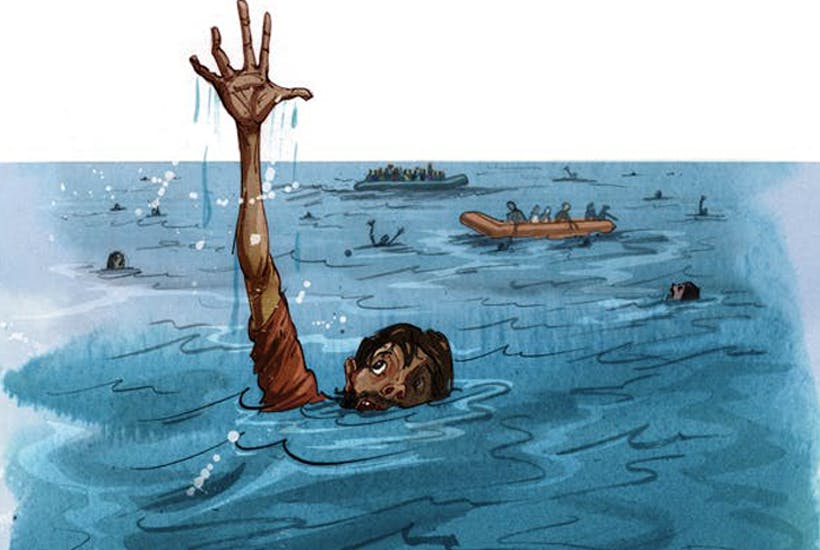In 2015, the number of migrants and asylum seekers arriving to Europe skyrocketed. According to Eurostat, approximately 50% of these migrants came from Syria, Iraq and Afghanistan. Most of the migrants were fleeing war and war-torn countries, countries unstable politically, socially and economically.
As migrants fared across the Mediterranean to our shores, European nations reacted differently. Germany and Sweden were hailed the heroes of the crisis as they decided to welcome a large amount of the migrants. However, in other member states, migration became much more of contentious issue.
Between 2008 and 2017, Germany, France, Italy and Sweden were the countries which received the largest number of first-time asylum seekers. In each of these countries we have since seen a significant surge in the electoral success of right-wing parties.
Why? Because migration is a complex issue and right-wing parties decide to frighten voters for their own electoral success.
Anti-immigrant rhetoric has often claimed that migrants are taking jobs, that they’re bringing crime, or that they present a higher chance of terrorism. Migrants have been depicted as an economic drain. These are all misconstrued allegations and such claims about migration are designed to frighten people and achieve the political agenda of extreme parties.
There is also an extensive debate about culture and migration. The key area that needs to be examined, is integration. If a country decides to take in migrants, they have to offer them opportunities and integrate them to society. Education is undoubtedly the first step. If migrants can master the language of the country they seek to live in, they will be able to find employment and be more easily included in society. As there is an intrinsic link between language and culture, language education might be the answer to the so-called threat to culture, which in itself is a lie given the proportion of migrants in Europe as a whole.
Furthermore, many migrants who arrive to Europe are extremely qualified and skilled workers. Therefore the simple black and white rhetoric of the far-right does not hold true. The issue of employment is a macroeconomic issue, countries need growth to sustain their economies and living standards.
These are the issues highlighted in political discourse and in the media. However we need to rethink the debate on migration. The cause of this mass influx of people is war, and the conflicts are a result of failed foreign policy and military intervention on the part of the EU and the US. Syria has become an extremely complex case. It is a conflict with many stakeholders between the Syrian government, its opposition, the US, certain EU countries, Russia, ISIS, and the Kurdish ethnic group.
Syria is complex but involvement in Iraq was based on a lie and the war in Afghanistan has been waged for years without any solution through diplomacy. No single person has the answers to solve these crises but we need to underscore the reality that we need to deal with the root of the problem as much as we need to deal with the current situation. Far-right parties complain and want to wash their hands of the issue. Real leaders regardless of ideology seek to tackle global issues with vision and effective action.
This post is from Hugh Murphy who blogs at hughmurphy19.wordpress.com. The original is called "Why we need to rethink the debate on migration". Hugh is Chair of @trinitylabour and describes himself as a socialist, feminist, & environmentalist Gaeilgeoir.

 RSS Feed
RSS Feed
